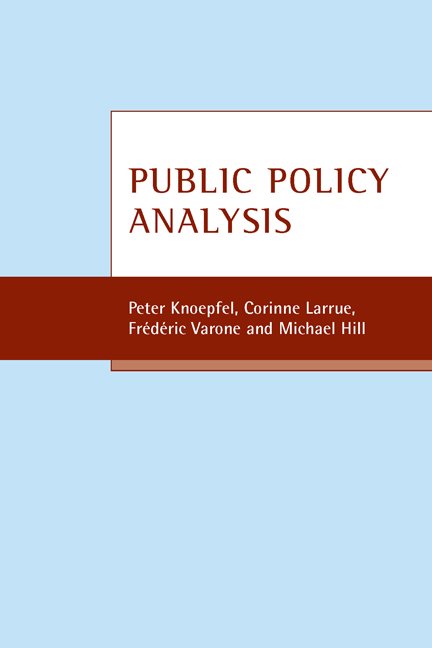Introduction
Published online by Cambridge University Press: 14 January 2022
Summary
The recent evolution of western democracies is characterised by the myriad challenges currently facing public sector actors. These include:
• the reduction of budget deficits and structural debt;
• the maintenance of political control over the economy in the face of the increasing influence of globalisation processes;
• the fulfilment of increased public expectations with respect to the levels of services provided;
• the increasing competition between public authorities at local, regional and international level;
• the management of the redistribution conflicts associated with the long-term exclusion of certain social groups;
• the need for the more professional management of (increasingly) scarce public resources;
• the democratic imperative of a systematic evaluation of the effects of laws and regulations;
• the political integration of minorities and the consensual management of the conflicts that result in their opposition to the majority.
Various institutional responses to these problems are currently being tested in the majority of western democratic regimes. Governmental and parliamentary agendas at all levels (local, regional, national and European) currently feature numerous pilot projects involving New Public Management or the reinvention/modernisation of the state, various accompanying processes involving liberalisation, deregulation and privatisation of certain public sectors and companies and alternative proposals for the reform of legislative and executive bodies. In this context of growing uncertainty, political-administrative actors are seeking credible and consensual solutions and, hence also, expertise on the different possible solutions for the modernisation of the political-administrative system and its interventions.
Policy analysis as presented in this manual aims to provide an understanding of, or response to, these basic questions concerning the legitimacy, efficacy and durability of public action.
Characteristics of the proposed method of policy analysis
The proposed method of policy analysis rests on three definitive analytical areas – the interaction between public and private actors, public problems and comparative analysis.
Analysis of the interaction between public and private actors
Policy analysis proposes to interpret the state and, more generally, the political-administrative system using the yardstick of its influence on the economy and society. Without denying or obscuring the power relationships inherent in all political-administrative processes, policy analysis concentrates on existing or emerging administrative organisations and the actual services they provide to the public.
Thus, with the emphasis on the comprehension of the complex workings of public action, the political institutions – previously the focus of research interest – are analysed from the perspective of the constraints and opportunities they offer to policy actors.
- Type
- Chapter
- Information
- Public Policy Analysis , pp. ix - xviiiPublisher: Bristol University PressPrint publication year: 2007

